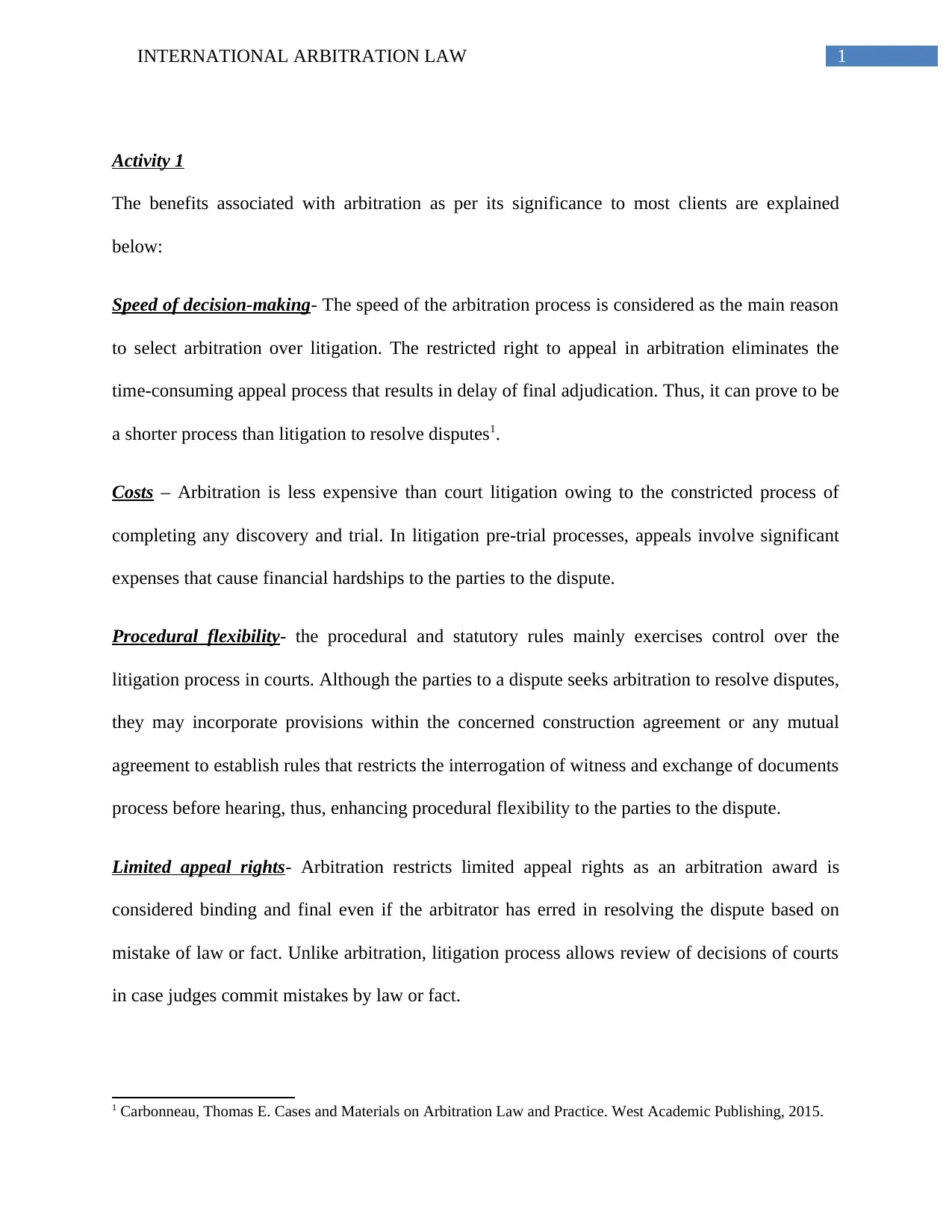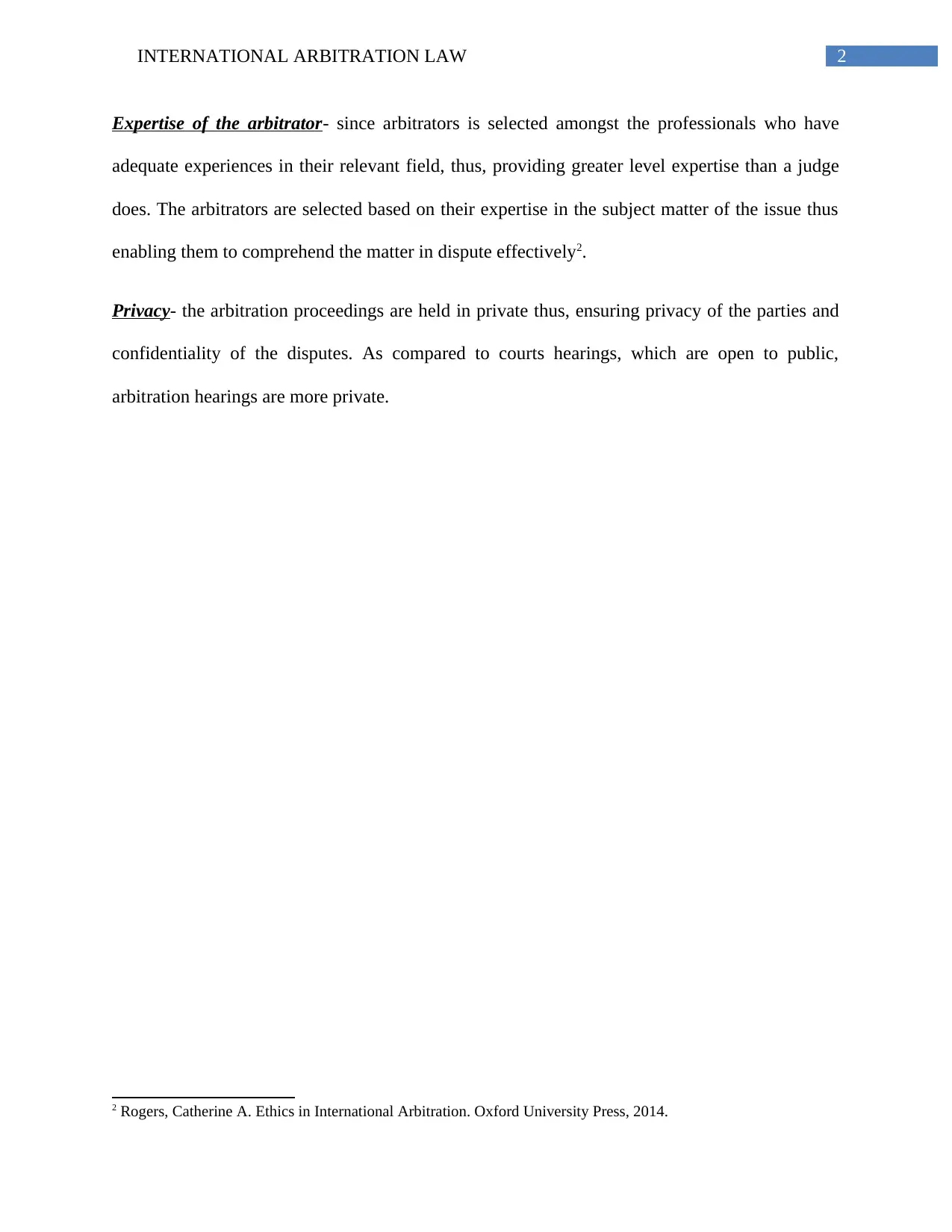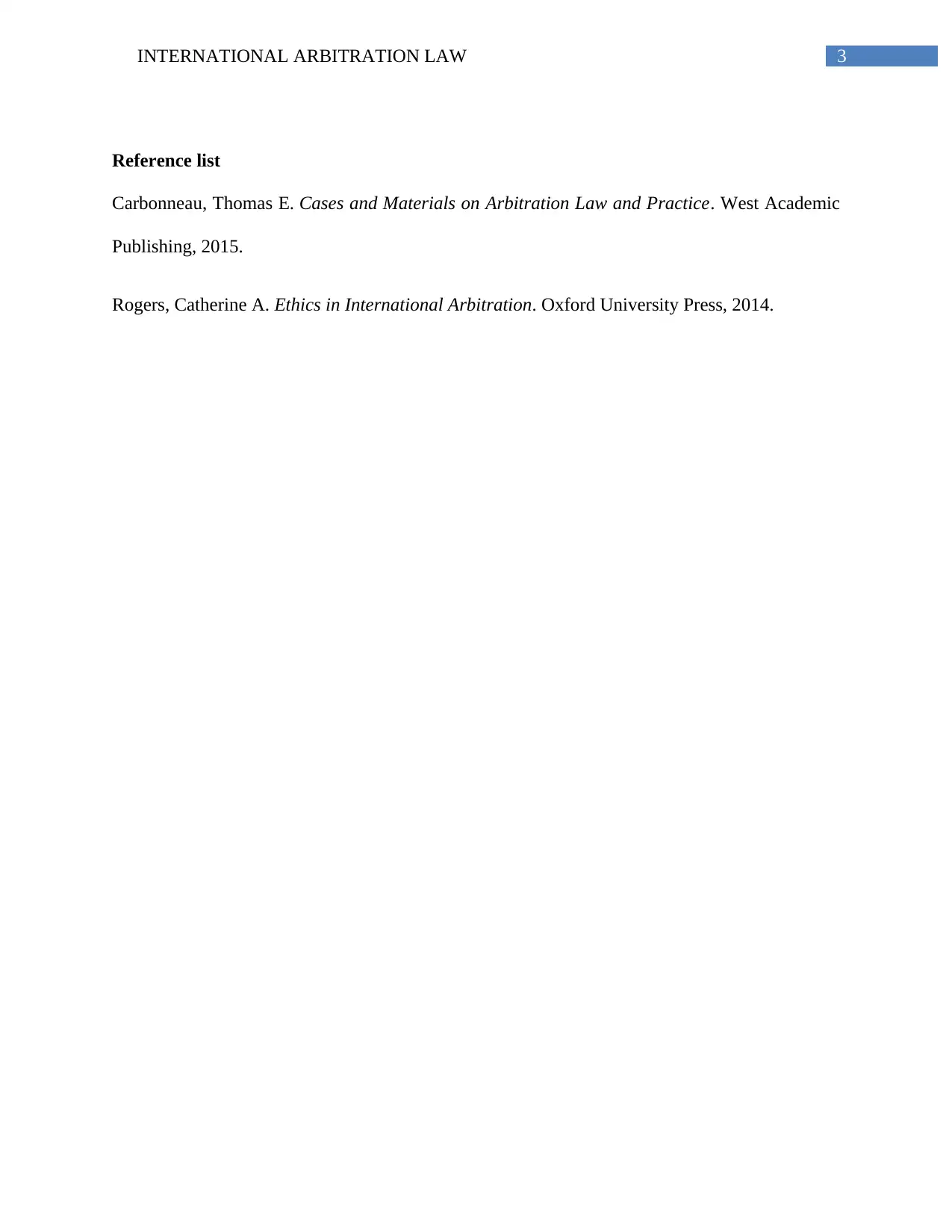International Arbitration Law Assignment - University Name
VerifiedAdded on 2020/05/16
|4
|399
|55
Homework Assignment
AI Summary
This assignment delves into the realm of international arbitration law, examining its significance and benefits. It highlights the advantages of arbitration over litigation, such as speed of decision-making, reduced costs, and procedural flexibility. The assignment explores the limited appeal rights in arbitration and the expertise of arbitrators. It also emphasizes the privacy and confidentiality of arbitration proceedings, making it a preferred method of dispute resolution for many clients. The reference list includes sources such as "Cases and Materials on Arbitration Law and Practice" and "Ethics in International Arbitration" to support the analysis. The assignment provides a comprehensive overview of the key aspects of arbitration and its role in resolving disputes.
1 out of 4











![[object Object]](/_next/static/media/star-bottom.7253800d.svg)